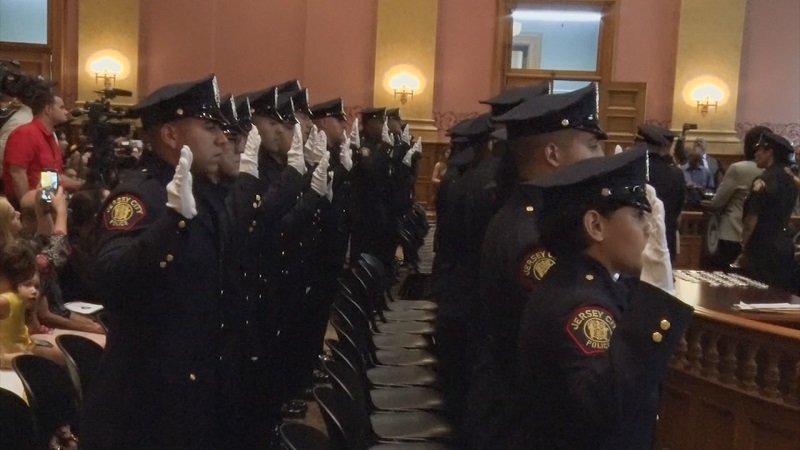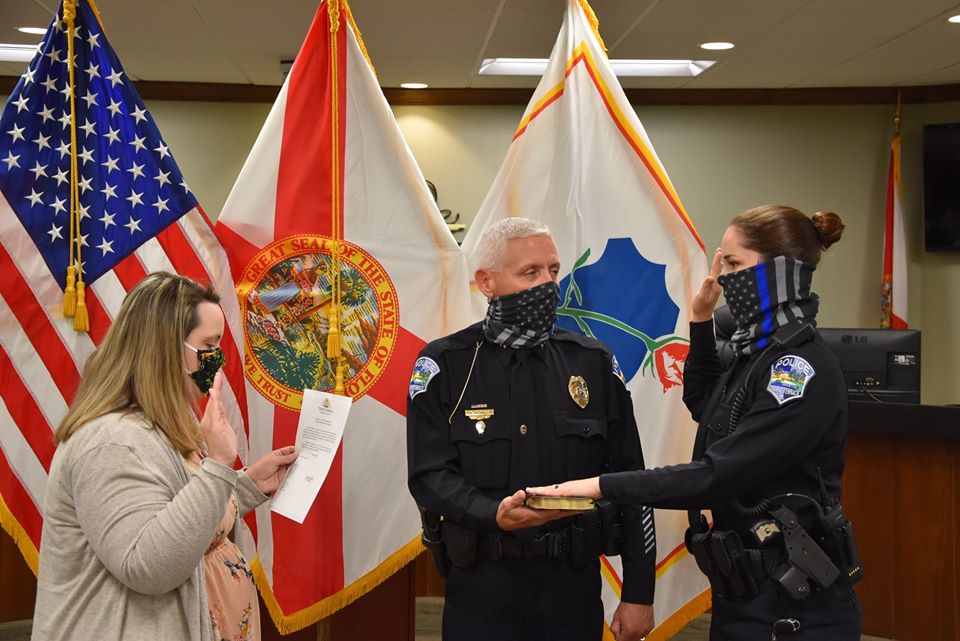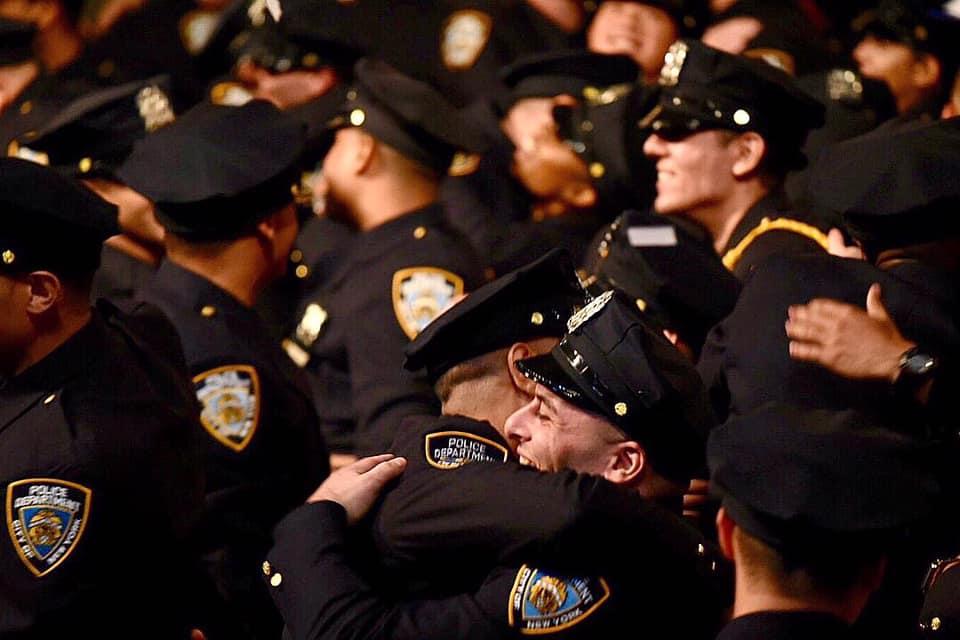

The drum beat regarding the social experiment of replacing cops with social workers has begun, and it is seriously flawed and lacking a main ingredient: constitutionality.
To begin our analysis, it is necessary to implore the existence of social workers and the fabulous work they do for many citizens around the country. Personally, I had a godsend social worker when I was clinging to life in a cancer hospital years ago. He set up everything before, during, and after undergoing a drug-induced catatonic state necessary to withstand the viciousness of cancer surgeries/treatments. This young professional caring person even went so far as to prepare paperwork packets for things I may or may not even need down the road. He championed on my behalf: I herald social workers!
Yet the current climate in our country is trumpeting the need to rid ourselves of cops (or diminish them significantly) by instituting social workers to perform law enforcement duties. Absent from the discussions on this very topic (at least the ones I saw) is the requisite constitutional authority to legitimately carry out poli— ahem, I mean, social worker duties.

There is a validated reason law enforcement officers (LEOs) jut their right hand after many months of rigorous physical training, brain-bending study of statutes, finessing emergency vehicle operations, optimizing weapons for self-defense and that of others, and pledge to serve and protect the citizenry…including self-sacrifice if the situation is definably life-threatening. The Police Officers Oath is vowed by every single LEO in America—doing so seals the deal of police certification (like a license in a certain specialty after meeting muster of mandated training). And that oath engenders a robust vat of enormous power conferred by the U.S. Constitution. Among the myriad tenets granted cops is the constitutional feature which social workers do not necessarily possess: The power of arrest.
Arrest routinely implies a series of events preceding the recognized authority figure observing lawlessness and enacting upon it with inherent probable cause. Subsequently, an investigation ensues, whether it be upon hot roadside asphalt while standing at a car window or upon the cool marble tile of a recently robbed bank.
It behooves to examine the scorched earth enclave of Seattle, where unprecedented unruly behavior and outlandish anarchistic operatives sought to take over and evict Seattle cops from the East Precinct, successfully turning it into territory hostile toward anything police-related (thanks to Seattle Mayor Jenny Durkan for being a hippie child with a gift that didn’t keep on giving). Ample reporting evolved from the CHOP/CHAZ saga, to include a few murders framed by filth and decay allowed to fester by local “governance.”
With Seattle as one sad backdrop among many similar choices, imagine a social worker or two or three walking up to the barriers emplaced by a bunch of radical hotheads hell-bent on birthing their own infantile government. Would they recognize these social workers as figures with any modicum of authority to do anything other than hear the “demands” (their favorite word nowadays, not mine) and depart for the blueprint drafting den?
Social workers would be exposed to the same unsanitary conditions and thus potential health conflicts, just like cops. Among those unsanitary conditions are members of society who care not to listen to rules, which is why they reside in public health-deficient domains. It’s cause-and-effect calculus. The tendency is to get hostile with authority figures, and that would mean unarmed and tactically-anemic social workers would be centered in the crosshairs of unruly folks who, out of desperation, will resort to desperate measures.
Ample victimization of society’s social workers is foreseeable, and it is entirely avoidable. Many jurisdictional changes are unfolding all across America. What is direly lacking is a well thought-out play-book by which policies, efficiencies, objectives, staffing, training, and innovations are among pertinent ingredients to succeed the mission, all useless without properly vetted and legally authorized personnel—like police officers.
Social workers would be outnumbered and without official capacity and requisite tactical training to hold their own —should any of these hotheads get overheated by their self-indoctrinated hate for law and order— unable to shut things down pronto…the very thing cops have been doing for many decades.
Social workers conducting traffic stops! Now that is a doozy which has already gained traction; Berkeley, California’s city council just voted to prohibit their cops from stopping motorists for traffic infractions. I suppose the easiest way to paint the reality of that picture is to be the would-be motorist traversing through Berkeley, having a civilian-looking human (gazillion choices of dress code versus distinct dark blue uni with a metallic badge and the word “POLICE”) somehow operating a car to get yours to cease mobility (civil rights experts are likely smirking by now), gesturing out the window and bizarrely motioning for you to pull over.
And now that Berkeley’s plan is public info, do-gooder social workers authorized by Berkeley’s governance may be copy-catted by illicit-minded miscreants seeking to score on the new “rule” by posing as a social worker and gaining a motorist’s compliance…before they also gain all their possessions in a roadside robbery. Fundamentally, though, mischievous monsters are likely donning a sinister smirk at the idea.
And what about necessary enforcement actions if/when criminal deeds were committed (or in progress of being committed, like DUI) by a driver? What does a social worker do then? Other than a certified police professional, I’ve never heard of anyone possessing constitutional authority to:
1) Impede a citizen’s right to free movement (whereas police are conferred that constitutional authority based on probable-cause principles).
2) Effect arrests of those deemed meeting the probable cause requirement, then assuming custody of citizens (like cops are trained to do, empowered by constitutional authority).
There’s a whole bevy of these tenets that we could analyze, but these two stand out and warrant deep analysis because the basic premise is outlandish and lacking lawful entitlement.

I hate to be the rude dude, but this substitute for real bona fide academy-trained battle-tested police officers is bizarre and far less than half-baked. No offense, social workers; you are all beloved humanists too. But the course for which you are being poised to undertake is rife with bear traps from which legislating leaders will not be present to set you free (or save you in advance). Things are gonna break bad quickly, and it’s all on you…out there in the streets. Who are you going to call then?
Criminal justice gears are fluid, and the bad guys are going to seize the advantage of an ill-qualified and ill-equipped social worker who has zero legal reign to enforce the law; you will be nothing more than a targeted pawn upon which miscreants will take aim and pleasure in defeating. If it is happening more to cops, it is not likely to abate for a civilian employee trying to maintain order among chaos and lawlessness.
One reason we have instituted tougher laws with regards to crimes against justice (cops) is that it serves as a deterrent (and many cops will admit it is a fallacy, or their widows may open up about it). Minus a police uniform trying to enforce law and order, social workers will be viewed as a John Q. Citizen getting in the way.
If there is one commonality between social workers and cops, it is that both are poorly paid. Yet again, one takes an oath by swearing laying down his/her life for another while, per my understanding, social workers have no such official vow. Technically, both are being set up to fail, but the former at least can fight his/her way out of a deadly instance by way of weaponry and unparalleled tactical skills honed at myriad police training facilities (until they, too, are shuttered).
Akin to the Minneapolis City Council vote to disband their entire police institution (for a so-called remedy which is merely utopian and without definitive measures to succeed), Berkeley has followed suit. Lawsuits will come. Civil rights attorneys will be filing motions and seeking punitive payouts on behalf of motorists whose right to move about freely were hindered by a civilian employed with the title social worker.
One compound example is Denver, Colorado deploying social workers to 911 calls. Everyone is aware the sole definition of “911” is “emergency.” Heck, 911 laws delineating its purpose (that “e” word we just covered) and governing its use (again, only for that “e” word) are written and passed in every state. Thus, if a social worker shows up at an authentic emergency involving crime to person(s) and the suspect is present and unmistakably armed and deranged, then what? Call the police?
And the Denver social worker used the term “low risk” 911 calls, that implies some risk anywhere upward from zero.
Is there hybrid potential? Sure is, and it has already been in place in some jurisdictions whereby cops are partnered with a social worker or mental health counselor.
Occupying a police car cruising the beat, these unique duos (one in uniform for protection and enforcement, the other in civilian attire for service provisions and resource allocation) patrol with a focus and finessing scenarios encountering ostensibly mentally distressed individuals. One faction from social services coupled with one faction of criminal justice officers seems a dynamic duo to mitigate modern-day Gothams and their contemporary dilemmas, paramount of which is getting the job done right without lopsided odds. Ultimately, the cop is not only there to keep the social worker safe but also maintain scene safety.
In any and all of this, law enforcers are swore to uphold federal and state laws as well as municipal ordinances, and for as far back as I can see, cops are the only ones charged with that responsibility and duty. And even when using all their training mandated by the states, when employing all the skills taught to the letter at police academies, when lawful actions are deployed…the big, the bad, and the ugly sometimes rears its head. Minus the Minneapolis murder of Mr. Floyd, most police incidents in which matters went like a comet zooming south had all the accurate of-record implementations of how to effect police work, contraindicated by the solitary onus of the suspect who brings a deleterious demeanor to the fore. Gee, what could go wrong? Many things. And I’d hate for social workers to find that out the hard way, in Anywhere, USA. So what gives? What is really fueling this hugely unorthodox concept which seems counterintuitive? Is it the “cost savings,” like the Denver social worker alluded?
Whatever the changes in society and however they are deemed good enough, lest we forget to Speak Truth.